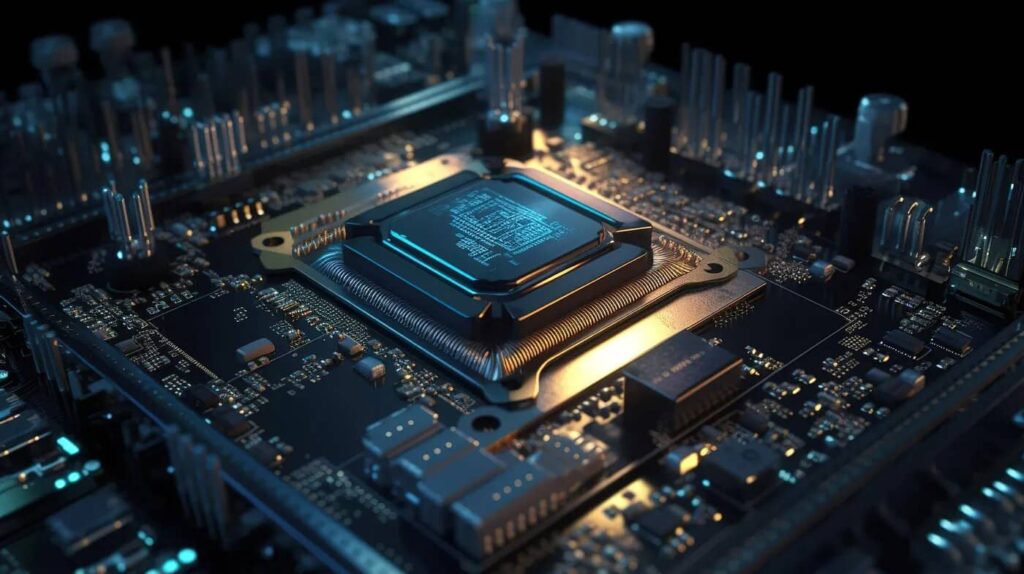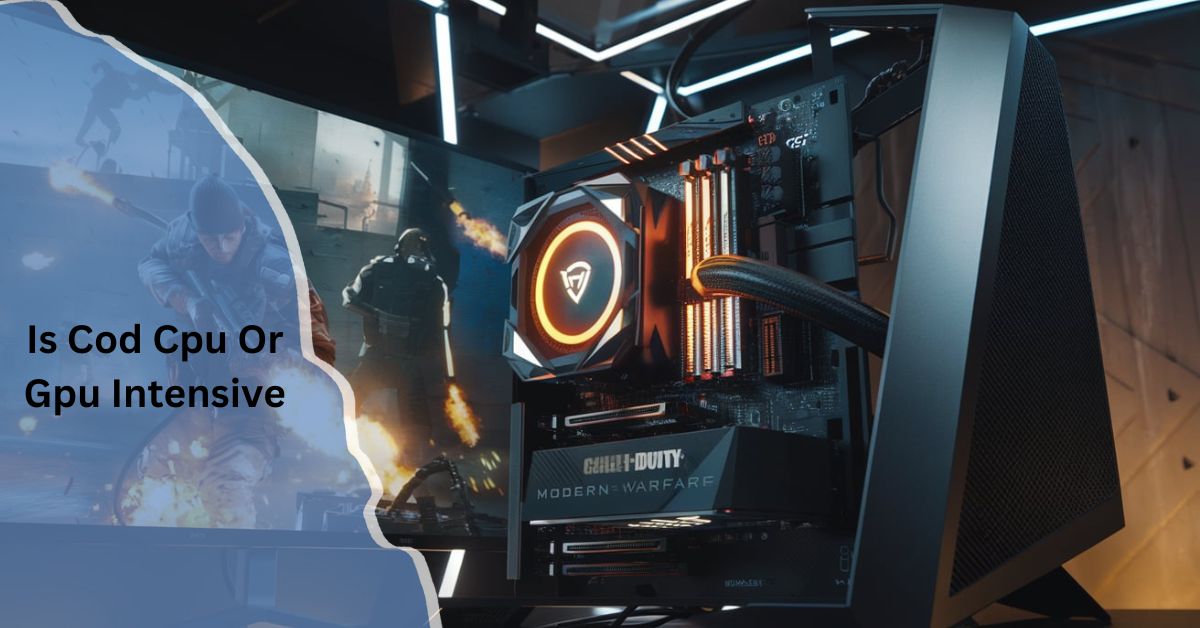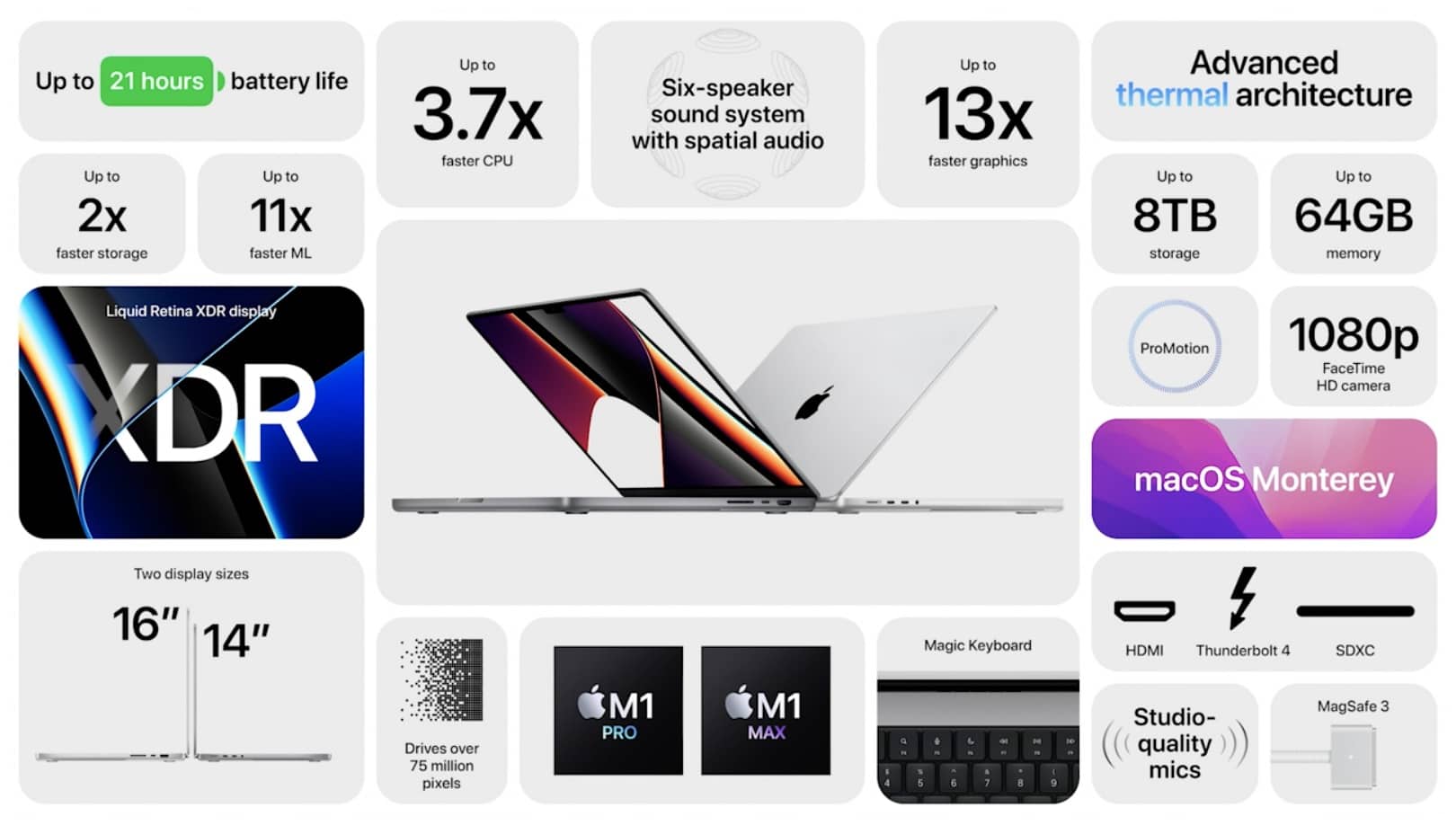Based on my experience playing Call of Duty, I’ve found that it’s both CPU and GPU intensive. My CPU handles game physics and AI, while my GPU takes care of the detailed graphics. For smooth gameplay, I’ve noticed that having a balanced system with a strong CPU and GPU is key.
The CPU is used for tasks like AI and physics, while the GPU handles high-quality graphics rendering. For optimal gameplay, a balanced system with a strong CPU and GPU is recommended.
Is COD Modern Warfare CPU or GPU Intensive?
Call of Duty: Modern Warfare is both CPU and GPU intensive, meaning it requires significant power from both components to run smoothly. The game relies heavily on the CPU for tasks like managing artificial intelligence (AI), handling complex game logic, and processing physics.
This is especially noticeable during intense firefights or when many AI-controlled enemies are on screen. Meanwhile, the GPU takes on the crucial role of rendering high-quality graphics, including detailed textures, dynamic lighting, and realistic environments.
If your CPU is powerful but your GPU is lacking, or vice versa, you might not achieve optimal performance. For the smoothest gameplay, ensure that both your CPU and GPU meet or exceed the game’s recommended specifications.
Understanding the Hardware Demands of Call of Duty – CPU vs. GPU

1. The Role of the CPU in Call of Duty:
In Call of Duty, the CPU (Central Processing Unit) is essential for managing complex game logic, including artificial intelligence (AI), physics calculations, and overall game operations. It handles tasks like decision-making for non-player characters (NPCs), calculating bullet trajectories, and processing player inputs. A powerful CPU ensures smooth gameplay by efficiently handling these computations, reducing lag and providing a responsive gaming experience.
2. The GPU’s Function in Call of Duty:
The GPU (Graphics Processing Unit) is crucial in Call of Duty for rendering high-quality visuals and ensuring a smooth graphical experience. It manages the rendering of detailed textures, complex lighting effects, and realistic shadows, which are essential for creating an immersive game environment. A strong GPU handles these graphics-intensive tasks, allowing for high frame rates and crisp visuals.
3. Optimizing Performance by Tying CPU and GPU in Balance:
To achieve the best performance in Call of Duty, it’s essential to strike a balance between CPU and GPU usage. Both components play crucial roles: the CPU handles game logic, AI, and physics, while the GPU takes care of rendering graphics and visual effects. Balancing these demands involves optimizing game settings to ensure neither component is overburdened.
How CPU and GPU Affect Your Call of Duty Gaming Experience
When considering whether Call of Duty is CPU or GPU intensive, it’s important to understand how both components impact your gaming experience. Is COD CPU or GPU intensive? The game relies heavily on both, but each component plays a distinct role.
The CPU handles critical tasks such as game logic, AI, and physics, making COD CPU intensive in terms of processing these complex calculations and managing real-time decisions. On the other hand, COD is GPU intensive due to its demanding graphical requirements, including high-resolution textures, detailed environments, and dynamic lighting effects.

A strong GPU ensures that these visual elements are rendered smoothly, which is crucial for maintaining high frame rates and overall visual fidelity. To optimize your Call of Duty experience, it’s essential to recognize that COD’s CPU and GPU demands are significant, and a balanced system with both a powerful CPU and GPU will provide the best performance. Thus, understanding the question of is COD CPU or GPU intensive helps in setting up your hardware to meet these diverse requirements effectively.
Optimize Your Gaming Setup for COD: Focus on CPU or GPU?
1. Evaluating Your Current Hardware for COD:
- Check CPU Usage: Monitor CPU performance to see if it reaches high usage during gameplay, indicating if it’s a potential bottleneck.
- Assess GPU Performance: Review GPU usage to determine if it handles high-resolution textures and detailed graphics efficiently.
- Review System Specifications: Compare your CPU and GPU specs with the recommended requirements for COD to gauge if your hardware meets the game’s demands.
- Run Benchmark Tests: Use benchmarking tools to measure your system’s performance and identify any potential issues with CPU or GPU performance.
- Monitor Temperatures: Ensure your CPU and GPU temperatures are within safe limits to prevent thermal throttling and maintain optimal performance.
- Check for Background Processes: Identify and close unnecessary background applications that could impact your CPU and GPU performance during gameplay.
- Update Drivers: Keep your CPU and GPU drivers updated to ensure compatibility and performance improvements for COD.
2. Choosing the Right CPU for Optimal COD Performance:

- Assess Core Count and Threads: Look for CPUs with a higher number of cores and threads to handle complex game logic and AI efficiently.
- Prioritize Clock Speed: Choose CPUs with higher base and boost clock speeds for better single-threaded performance, crucial for smooth gameplay.
- Check Compatibility: Ensure the CPU is compatible with your motherboard and other hardware components.
- Consider Future-Proofing: Opt for a CPU that can handle not just current COD games but also future updates and releases.
- Evaluate Brand and Model: Compare different models from leading brands like Intel and AMD to find one with the best performance-to-price ratio for COD.
3. Adjusting Game Settings to Maximize Hardware Efficiency:
- Lower Graphics Settings: Reduce texture quality, shadow details, and effects to lessen the load on the GPU and improve frame rates.
- Adjust Resolution: Lower the screen resolution to ease the strain on both the CPU and GPU, enhancing overall performance.
- Enable Performance Modes: Use in-game performance modes or presets designed to optimize settings for smoother gameplay.
- Modify Frame Rate Cap: Set a frame rate cap to prevent the GPU from overworking and ensure a more stable gaming experience.
- Disable Unnecessary Features: Turn off features like motion blur or anti-aliasing if they aren’t critical for your gaming experience.
Does Call of Duty Need More CPU or GPU Power?
When evaluating whether Call of Duty is CPU or GPU intensive, it’s important to understand how both components contribute to the game’s performance. Is COD CPU or GPU intensive In general, Call of Duty games require a balanced approach between CPU and GPU power.

The game’s demanding graphics and detailed environments make COD GPU intensive, as the GPU is responsible for rendering high-quality visuals, dynamic lighting, and intricate textures. On the other hand, COD CPU intensive aspects include handling game logic, AI behaviors, and physics calculations.
A powerful CPU is necessary to manage these tasks efficiently, ensuring smooth gameplay and reducing potential bottlenecks. To optimize performance, gamers should focus on a robust GPU for visual fidelity and a capable CPU to handle the game’s processing demands.
Best Hardware Configuration for Playing Call of Duty
1. Recommended CPU Specifications for Call of Duty:
The recommended CPUs for playing COD are those with strong multi-core capabilities and high clock speeds. Processors such as the Intel Core i7-9700K and the AMD Ryzen 7 3700X are excellent choices, providing the power needed for smooth gameplay and efficient handling of complex game mechanics. These CPUs excel at managing the game’s AI, physics, and overall logic, ensuring a fluid and responsive gaming experience. For the best performance, aim for a CPU with at least 6 cores and 12 threads, and a base clock speed of 3.5 GHz or higher.
2. Call of Duty’s ideal GPU requirements:
- NVIDIA GeForce RTX 3070: Provides excellent performance with high-resolution textures and advanced visual effects.
- AMD Radeon RX 6800: Offers robust graphics power for smooth gameplay and high frame rates.
- NVIDIA GeForce RTX 3080: Ideal for ultra settings and 4K gaming, delivering superior performance.
- AMD Radeon RX 6900 XT: High-end GPU for maximum detail and fluid motion in demanding scenarios.
- Minimum Requirement: NVIDIA GeForce GTX 970 or AMD Radeon RX 580 for acceptable performance at lower settings.
3. Ideal RAM and Storage for Smooth COD Gameplay:

- RAM: 16GB DDR4 RAM is recommended for optimal performance, ensuring smooth multitasking and quick data access during intense gaming sessions. For future-proofing, 32GB is ideal.
- Storage: A Solid State Drive (SSD) with at least 500GB is crucial for faster load times and quick data retrieval. An NVMe SSD is preferred for even faster performance.
- Additional Storage: If you play multiple games or need extra space, consider a secondary HDD with 1TB or more for additional storage.
FAQ’s
1. Why is Warzone not using my GPU and CPU effectively?
Warzone might not utilize your GPU and CPU fully due to outdated drivers, power-saving settings, background applications, or incorrect game settings. Ensuring your drivers are up-to-date and optimizing game settings can help.
2. Can you play Warzone without a graphics card?
Integrated graphics may struggle with the game’s demands, leading to low FPS and poor performance. A dedicated GPU is recommended for a better experience.
3. Should I upgrade my CPU or GPU for Call of Duty Warzone?
Upgrading the GPU enhances graphics and frame rates, while upgrading the CPU improves overall game performance and smoothness. Consider both upgrades for the best gaming experience.
4. Is Call of Duty CPU or GPU bound?
In general, Call of Duty games are more GPU-bound, particularly when playing at higher settings and resolutions.However, they can be CPU-bound at lower resolutions or with less powerful CPUs.
5. Are first-person shooters CPU-intensive?
First-person shooters are typically more GPU-intensive but still require a good CPU for handling game logic, AI, and maintaining high frame rates.
Conclusion:
In conclusion, Call of Duty games demand a balanced blend of CPU and GPU power to deliver the best gameplay experience. While the GPU plays a crucial role in rendering high-quality graphics and maintaining smooth frame rates, the CPU is essential for handling game logic, AI, and physics calculations.








